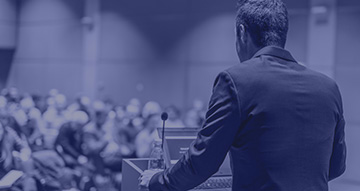Transformational Leadership: Aligning the Inner and Outer Game
By Bindu Vinodhan, Founder, TILLT, Mauna Dhwani Foundation |Nov 01, 2021
The extent of human potential is soaring, challenging preconceived notions of leadership. In a world that is consistently shifting shape, and companies are focussed on repositioning themselves for success, transformational leaders may just be the key to run businesses and minimise the chaos. Bindu Vinodhan, Founder, TILLT and Mauna Dhwani Foundation, breaks down age-old myths, and reveals what it takes to be the agent of change and impact millions.
Coping with continuous disruption has become a way of life. The widely prevalent philosophy of a VUCA[1] world is steadily fading to reveal the brittle, anxious, non-linear, incomprehensible (BANI)[2] world—apt words, perhaps, to describe the era we are living in. As firms battle the chaos and instability caused by myriad factors (dwindling profits, high attrition rates, operational changes)—all the while attempting survival—the need for transformational leaders to sustain the next generation of businesses has further amplified.
Transformational Leadership: Need of the Hour
What makes the human race distinct is our ability to constantly adapt and change, no matter what the world throws at us. This cognitive evolution and learning agility places us above all species, putting it in our power to positively affect multitudes. Researchers across the board have described transformational leaders as galvanising millions, and exponentially increasing their impact in the process. What sets them apart is their ability to enable people to have insights, which help them achieve what they previously considered inconceivable. Over time, another component that has been added is the ‘scale’ at which one is able to do this. So, it is not about influencing one or two people—but inspiring millions and making an impact, within the shortest span of time—because of who one is, and how they think and lead.
Just like Gandhi convinced millions that independence could be achieved without war, and Mandela inspired South Africans to freedom, business leaders in recent times have conceptualised and given shape to ideas that were hitherto considered impossible. Take the example of electric cars by Tesla. People thought electric cars were a joke, but lo and behold, it is all happening in real time! The biggest car companies are now adopting this technology as part of their business and sustainability goals.
Is It Achievable? Aligning the Inner and Outer Game
The idea of a ‘born leader’ was internalised for the longest time, thereby being limited to a select few. The numbers were eerily miniscule with 1-3% having the natural ability to lead. However, the traditional belief that there can be only one Mahatma Gandhi, or one Martin Luther King, or one Nelson Mandela, spelt doom for the political, social, and the business worlds. With businesses transforming at an exponential speed, the last two decades have seen a body of academic work being kicked off, proving that there are transformational tools that people can leverage in order to be more impactful. Advances in psychology, human sciences and a host of other disciplines have empowered us with robust tools, and the numbers are indeed telling a positive story. Researchers now believe that one in three people have it in them to be transformational leaders, given the right tools.
And the underlying thought binding all this, beautifully, is something that we, in the eastern world, have known for centuries—once the inner game, ‘the unknown variable,’ has been deciphered, mastering the outer game is easy. Skills are learnable, it is the mindset shifts—being open and forming perspectives—which is the bigger challenge.
All species respond to stimulus. However, humans are the only species that can pause between a stimulus and the response. In his book, Man’s Search for Meaning, celebrated Austrian psychiatrist Viktor Frankl, says, “Everything can be taken from a man but one thing: the last of the human freedoms—to choose one’s attitude in any given set of circumstances, to choose one’s own way.”
Herein lies our greatest power as leaders—taking the pause, assessing the options brought forth by the pause, and acting accordingly.
The 3Cs: Enhancing ‘Presence’ in Leaders
Change: The biggest impediment on the road to being a transformational leader is the ‘change’ element—leading self and teams through change. The need to rewire, unlearn, and adapt in order to influence thousands could be daunting, but once those fears are unlocked, and one has embraced change, they have taken the leap for success. This is exactly what transformational leaders do. In a business setting, one’s adaptability to change and survival in a dynamic environment remain as the top criteria for evaluation in every high potential or senior role.
Communication: The level of communication varies at different levels and is a skill that needs continual investment. Communication at the management level comes under the body of masterful conversations. While this has many aspects, the top three skills that will accelerate the journey of today’s leaders to being truly transformational are:
a). Crucial conversations- When the stakes are high, opinions vary and emotions run askew, one ought to keep the dialogue going. A productive dialogue—devoid of a preconceived story and conclusion in our heads—helps diffuse the tension and enables one to move ahead. In their book, Crucial Conversations: Tools for Talking When Stakes Are High, Dr Kerry Patterson and Dr Jospeh Grenny, share detailed frameworks that may help steer through these difficult yet unavoidable exchanges.
b). Business storytelling- Working on intellectual stimulation, telling a narrative activates seven parts of the brain, as opposed to presenting facts, figures, and data, that merely activate two. In today’s dynamic work environments and tight timelines to achieve outcomes, getting the ‘maximum’ number of neurons fired in the ‘shortest’ span of time, gives leaders an edge over others, helping them create a lasting impact. It is, in fact, a filtration criterion in top leadership positions.
c). Negotiation- Transformational leadership views negotiation differently from a one-sided conversation or a win-win. Approaching a conversation with an open mind creates a pool of shared meaning between two parties, which holds real value when both parties indulge in transparent communication, creating a safe space for ideas to float. What emerges is something bigger, with a shared IQ and endless possibilities.
Courage: Surprisingly enough, this can be trained too. Looking at human sciences, scientists have found that we are operating in a spectrum. It is said that we are born courageous, but fears come in from our environment and our unique experiences. On one end of the spectrum are the feelings of love, joy, trust, collaboration, and openness, which form the creative space, while fear, insecurity, anger, resentment, and jealousy form the reactive space on the other end. Movement between the reactive and creative spaces is possible by bringing in ‘the pause’ and self-awareness. These triggers, in fact, are a set-up for unlocking potential and creating something new.
Taking this opportunity to narrate a lived experience, here is an anecdote about my experience of working with the tribals in Odisha. It is not a safe terrain and I end up travelling to the villages frequently. On one such trip, I encountered a raging crowd of 50-60 men ready to attack us, and it was terrifying! Soon after, one of the tribals placed their hand on my back—it is a tribal custom, which means ‘you are mine and I am with you,’—and within a few seconds, I felt countless hands on my back. It was a bodily experience almost, because just then, that one button of fear switched off for me. All my life, I have been an individual achiever, and that incident reinforced one of my life’s biggest lessons—that we are social beings, and nothing without collaboration. That day, my courage unlocked, and has stayed with me ever since in the corporate world too.
Hitting a Plateau?
Change is the only constant, and its significance as the most critical aspect in our growth journeys cannot be stressed enough. In my experience of leading transformation journeys of several seasoned leaders, the common theme of stagnation has surfaced regularly. And here again, I would like to say that it is the mindset shift and the inner game that needs a round of reflection. Hitting a plateau is a clear signal and the perfect opportunity to plan the next steps and chart a new path. At such a juncture, one needs to raise their consciousness and take a moment to reflect on some questions like: ‘Why do I exist?’ ‘What are my gifts?’ ‘What is the impact I want to make in the future?’
The journey from staying in a cocoon to becoming a butterfly is not easy. One needs to break the mould and introspect— ‘What are my possibilities?’ ‘Am I living my values right now?’ The answers to these questions about purpose and deeper meaning will help provide the unlock, aligning one with their future goals. It is equally crucial to remember that there is no going back to being a larva, once you are a butterfly. And at some point, being a butterfly would not suffice either. Human consciousness is always looking for another breakthrough, and yet, the pauses and the pitstops, and the continuous learning through coaches and mentors, is what makes the journey from one point to another possible and meaningful.
Whether new managers or seasoned ones, I would advise all leaders to make a pitstop once every three rounds, just like F1 racers, and check for any signs of wear-and-tear or deflated tires.
Building ‘Voice’ and Lessons from the Santhal Women
Being a transformational leader involves building your voice and being original. In the days of social media, thought leadership has taken a whole new meaning. But it is critical to remember that sharing something of value is what makes the real impact; otherwise, it becomes the noise that nobody wants to hear. I am a huge believer in communities of interest, and like-minded people coming together to foster the pool of shared meaning. It encourages reflections and all this shared IQ creates value that is distinct from the noise of mindless monologues. At the end of the day, the medium ought to be one’s tool to collaborate and contribute to the world, and not enslave us to itself.
Over the years, tribal women have taught me that there is no substitute for authenticity. These women are leaders in their own right, emanating powerful energy and creating resonance. Wherever they are, they are completely present. Leaders in corporate boardrooms need not be very different from them. When we are real, we radiate our complete energy, and this magnificent energy has the power to singularly impact millions! When we as leaders find the courage to go inwards and discover our biggest strengths, see our biggest possibilities, and do what is truly authentic to us, we bring out our magnificence and transform our teams, organisations, and the world at large.
[1] The acronym VUCA stands for Volatility, Uncertainty, Complexity and Ambiguity—four distinct type of challenges that demand distinctive responses. It was first used in 1987, drawing on the leadership theories of Warren Bennis and Burt Nanus
[2] The acronym BANI, formed in 2020 due to global systemic shifts, stands for Brittleness (fragility), Anxiety, Non-linearity, and Incomprehensibility. The term was newly coined by Jamais Cascio, professor at the University of California, historian, researcher and member of the Institute for the Future

Bindu Vinodhan, Founder, The Institute of Leadership Learning and Transformation (TILLT), Mauna Dhwani Foundation
Bindu Vinodhan is a business and leadership transformation coach with over two decades of experience in organisational development. She founded TILLT, an organisation that enables leadership teams to achieve large-scale transformations. Through Mauna Dhwani Foundation, she lives and works closely with women weavers in the tribal communities of northern Odisha, helping them reintegrate into society by enabling self-esteem, building niche skills, and focussing on their health and nutrition. Educated at Oxford University, Bindu has worked with WNS Global Services, Vodafone, Hewlett Packard, and Bank of America.




